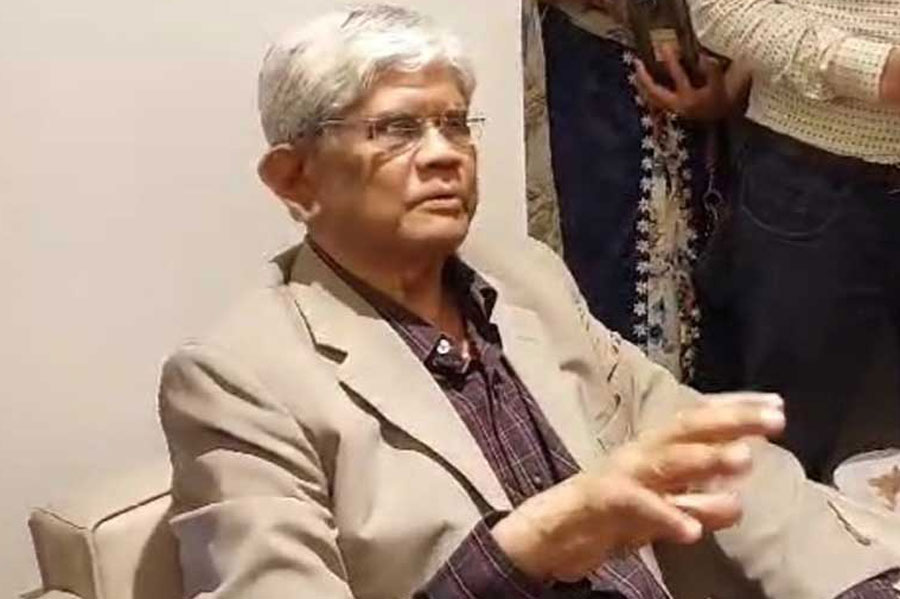
Published :
Updated :

Next government will take decision on implementation of the new pay scale for public employees, says Finance Adviser Dr Salehuddin Ahmed, indicating interim government's hands-off on major matters ahead of elections.
Also, the International Monetary Fund (IMF) will make decision on release of the next tranche of its loan in consultation with the next political government, which comes out of the polls tentatively set for next February in the post-uprising transition process.
The finance adviser was briefing newsmen after chairing three separate meetings on public procurement, economic affairs and food planning and monitoring committee at Bangladesh Secretariat.
The adviser said: "There is an issue of pay commission. We can't tell about it now. Let's see how far it goes. The next government may implement it after assuming office."
The interim government formed the pay commission on July 27 to recommend a new pay structure for government employees which was asked to submit report within six months of the formation.
Turning to the ongoing loan review being carried out by an IMF mission, the interim custodian of exchequer says the Fund has expressed satisfaction with the reform-related achievements, but, at the same time, suggested enhancing revenue collection.
"I agreed that our tax-GDP ratio is low," he says, adding that there are many reasons behind this.
Mr Ahmed says the IMF also recommends spending more on social protection, especially on health, education, social security, and food sectors.
Asked whether the interim government will be able to complete the reforms in next three months of its tenure, he says the interim government will do whatever it can. The rest will be carried out by next government, because reform is a continuous process.
On the expectation for release of next tranche of IMF loan, he says the lender wants to complete the review now, but, at the same time, they want to be sure about the commitment of next political government on the reform conditions before releasing next instalment.
The adviser says just after the election is held, the IMF team will again come to review the progress and decide about the disbursement of next instalment.
Replying to a query on recent remarks made by the central bank governor on turning share price of five shariah-based banks to zero, the finance adviser says that is not a final decision. "We will look into the matter."
Regarding the governor's proposal to upgrade the status of the governor to a cabinet minister, he says he has received a proposal to this end. "A decision in this regard will be taken collectively."
Talking about food prices, the adviser says he expects that rice prices will remain stable in the coming months.
"Rice prices are more or less stable. Yes, there may be some variations, but we would say the situation is under control."
Also, he mentions that food inflation has come down to some extent while non-food inflation has yet to come down.
He says the government gave approval for import of non-aromatic boiled rice to ensure a smoother supply on the domestic market.
Mr Ahmed, referring to the decision of food planning and monitoring committee meeting, says the government will buy 50,000 tonnes of paddy in Aman season, import 600,000 tonnes of non-aromatic rice, and parboiled rice 50,000 tonnes. The procurement will last until end-February.
Paddy price will be Tk 34 per kg, boiled rice Tk 50, and parboiled rice Tk 49.
"We will buy paddy from the farmers instead of millers," he says about a much-sought-after switch.
syful-islam@outlook.com


 For all latest news, follow The Financial Express Google News channel.
For all latest news, follow The Financial Express Google News channel.